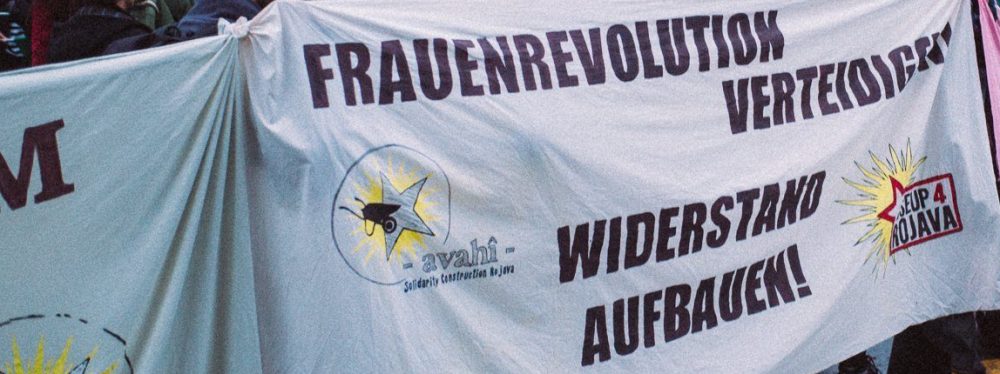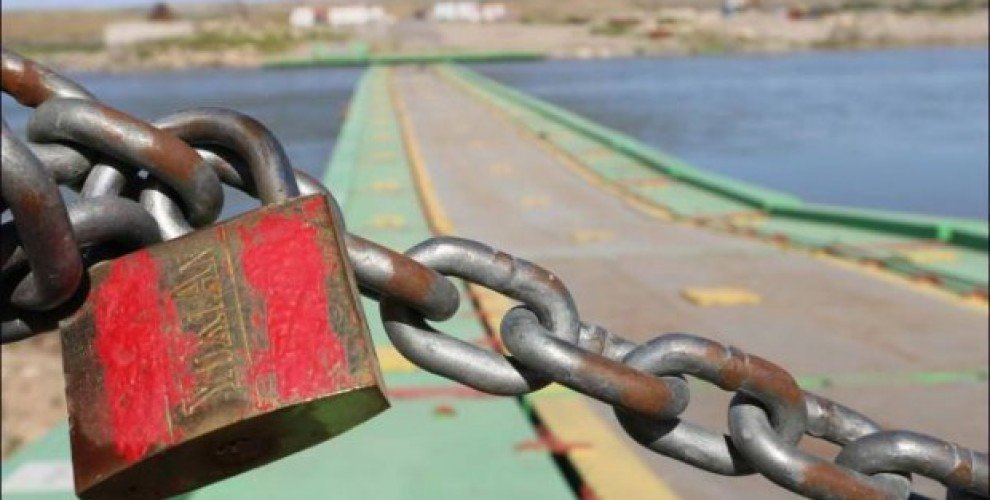constructing a construction site
The project avahî – solidarity construction Rojava started 3 years ago. We have come a long way from the idea of realizing practical international solidarity to the actual construction planning of a polyclinic for Rojava (Democratic Federation of Northern Syria). When founding avahî we started looking for a cooperation partner which we found at the end of 2015: The Foundation of Free Women in Rojava (WJAR – Weqfa Jin Azad Rojava). Since then we have been discussing, planning and coordinating together with the women of the foundation in Rojava and in Europe. We decided on the construction of a community center to support the democratic self-government in Rojava.
While planning and realizing the construction site we are placing special value on three cornerstones:
Collectivity – solidarity – ecology
This means firstly a collective process together with the people from Rojava. Secondly, organizing practical solidarity means a construction financed by donations and realized by activists who work without payment and bear their travel expenses.
The third cornerstone will literally be built with clay. The ecologic value of the locally available material (in addition to its positive impact on the indoor climate) convinced us to include this traditional building technique in our project.
During the preparations we were and still are facing many challenges. Plans have to be adjusted and the organization must constantly be adapted to the changing local conditions. That is how the initial project of building a community center became a construction schedule for a polyclinic specialized on women’s and children’s needs, which is much needed, as suggested by the self-government. Until August 2018 there was a building site for this polyclinic which, however, is not suitable any more.
On the site is a shell of a building which was going to be a mosque before the revolution. Even though the owner, the Foundation of Free Women in Rojava, as well as the local commissions for religion and health agreed on the construction of the polyclinic, the local community is divided over the question of religion. After our delegation’s visit and the concretization of the construction plans, the building site had to be changed because there was too much worries among the local population about the conversion of a place which was meant for religious purposes.
In times of war people obviously need health care but spiritual health and peace of mind might be of importance too, even though for us here it is hard to understand.
For us this entails new construction drawing and scheduling, as well as a further delay of the collective construction site.
Nevertheless this unexpected twist demonstrates the people’s say in the democratic self-government – they can intervene at every step of the decision making process.
After all we do not want to build just a house. We want to take part in the construction of a free and solidary society. Therefore a building site is needed but much more important is a social fundament of mutual respect for worries, hopes and wishes. The latest development is part of a society under construction which takes place with the local people, not above their heads. That is why the change of the building site is a delay for the construction schedule but an important step towards our collective construction site.
The biggest obstacles we face result from the repressions of regional and international forces and states against the self-government in Rojava. The (boarder) politics of Iraqi Kurdistan and the enduring Turkish attacks (occupying Afrin, bombing Shengal and other Kurdish regions) have been complicating the region’s pacification for years. It hindered our entry several times.
The forces of the self-government make great advances against Daesh (the so called Islamic State) and the civil councils try hard to continue stabilizing the safest region of Syria by pushing the self-governance, the rebuilding of infrastructure as well as negotiations with the local and international powers – whereas different hostile forces keep fighting against those achievements.
Nevertheless we keep adjusting to the difficulties and make smaller groups to enter and organize the start of construction with the Foundation of Free Women. Also we continue the construction preparations and the donation campaign as well as the information events.
avahî originated as political solidarity project and, with the support of many friends and comrades, continues to take part in the struggle for a free society in Rojava and beyond.


